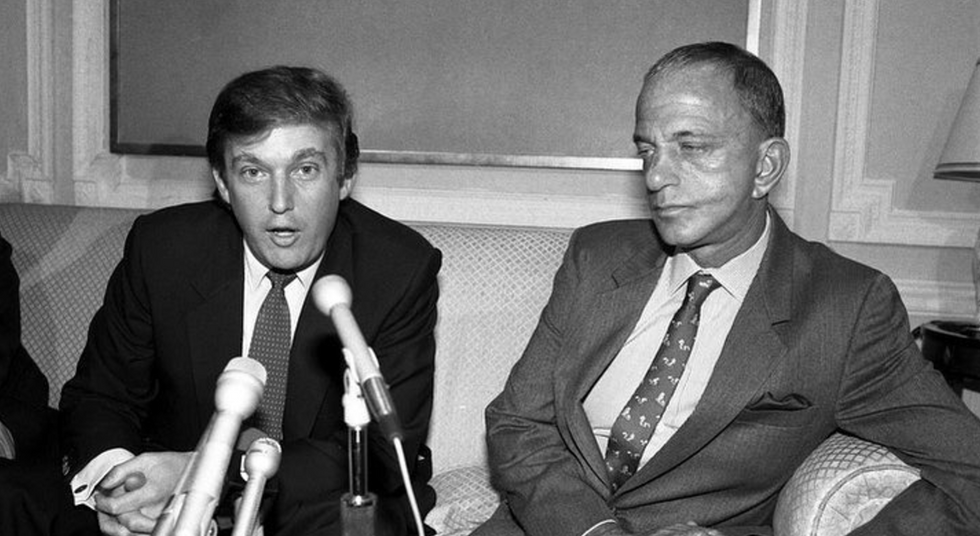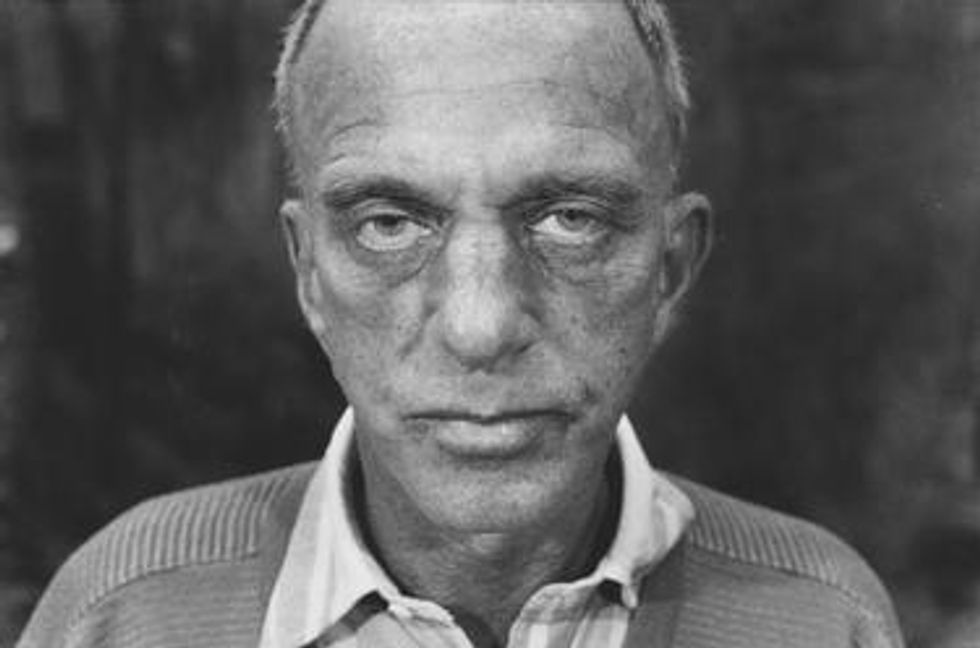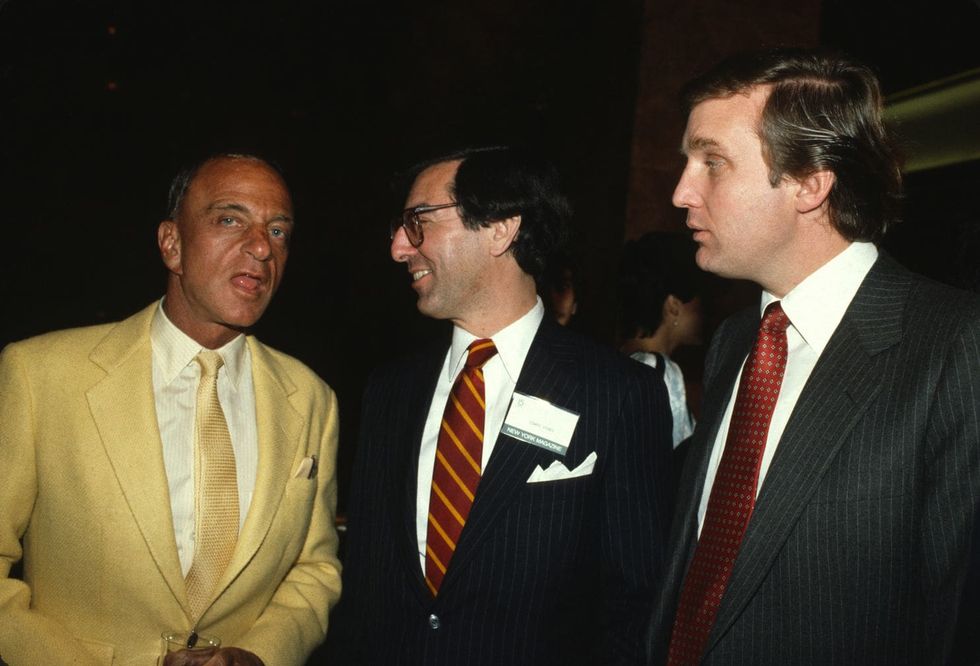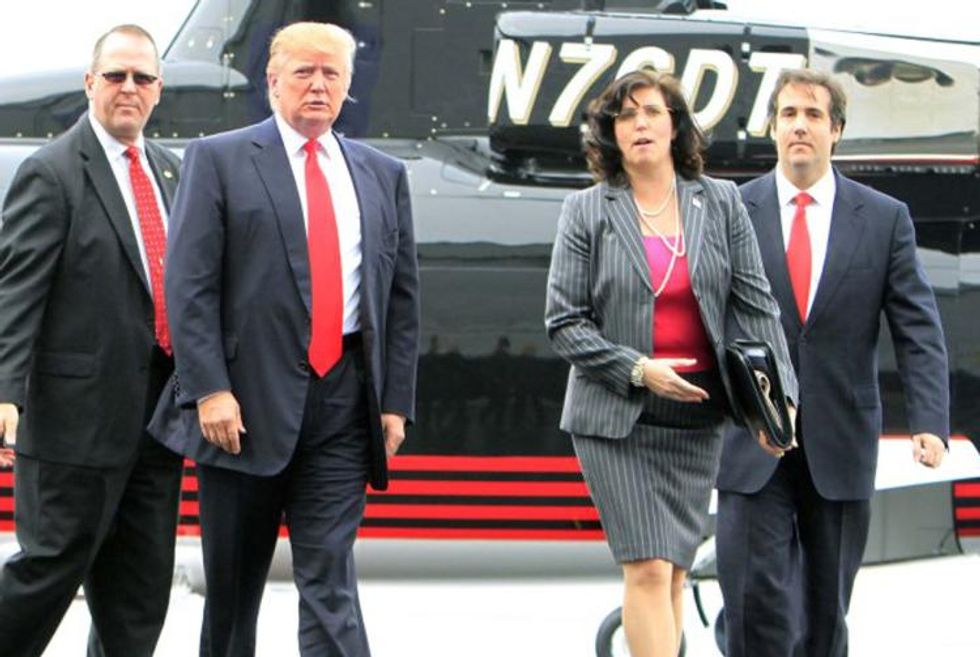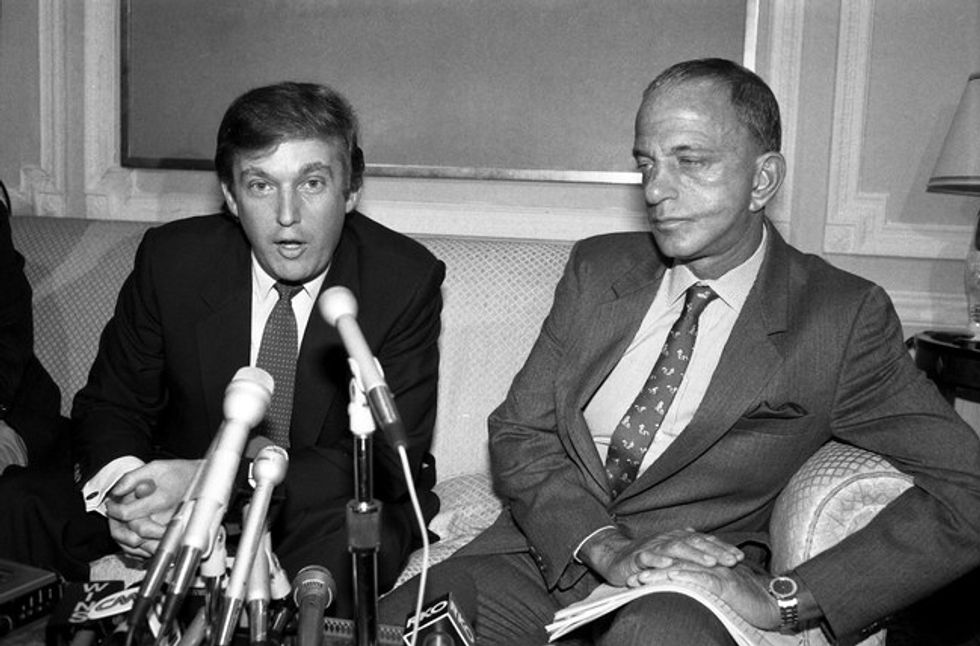Before I began conducting research for an upcoming presentation, I (nor, notably, anyone I asked who had lived through the era) had never heard of The Lavender Scare. An offshoot of the infamous Red Scare, the Lavender Scare was a witch-hunt conducted to rid the government and military of any confirmed or suspected homosexual individuals. The basis for this decision was rooted in American prejudice and exacerbated by Joe McCarthy and, more notably, Roy Cohn. Throughout my readings, Cohn has stuck out as a walking contradiction, for, despite persecuting and enhancing bias towards homosexual civil servants, Cohn himself was gay (or, according to Roger Stone, “not gay… He was a man who liked having sex with men").
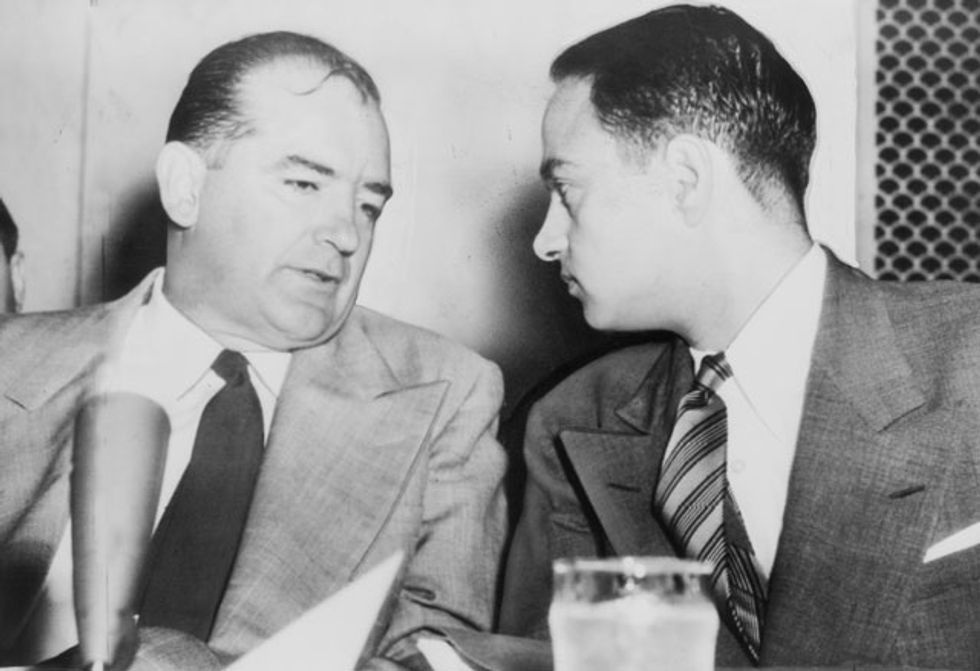
Cohn is an interesting historical figure to look at for a variety of reasons, but in the wake of recent political developments, his relationship with President Donald Trump has become a prevalent and necessary discussion. Described frequently and accurately as a “pit -bull lawyer” in reference to his work ethic, Cohn is remembered for his scorched earth legal tactics and the aggression he showed when met with opposition.Cohn served as Trump’s personal attorney back when he was first trying to get his bearings as a real-estate developer throughout the 70’s and into the 80’s.
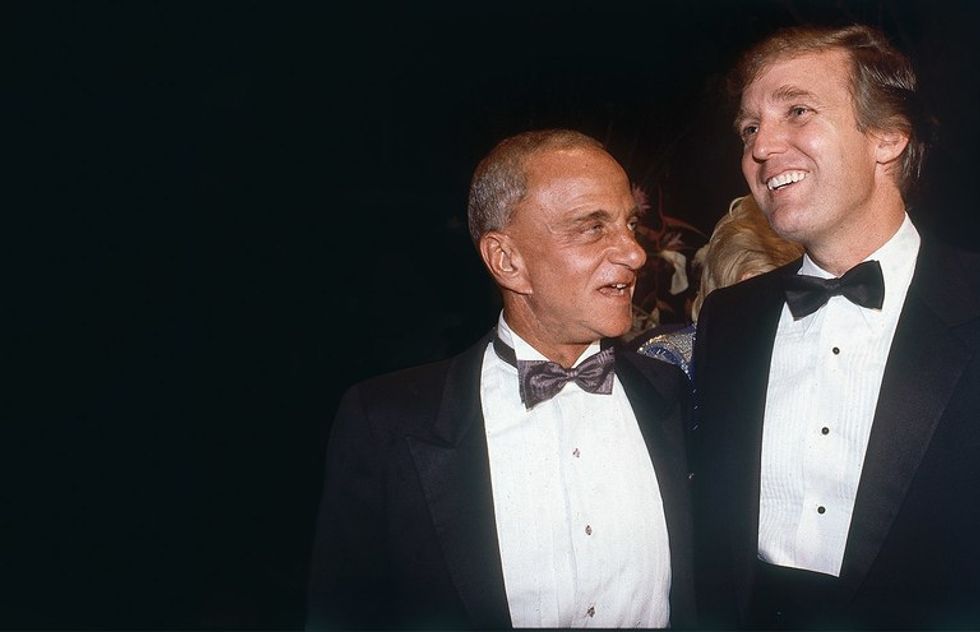
Cohn and Trump in 1983. They met a decade earlier in 1973 and Trump immediately glorified his lawyer, mentor, and friend.
Trump became fixated on his "personal lawyer and fixer," calling him 15 to 20 times a day and adopting many of the mannerisms we see in him today: as Nathan Lane, who plays Cohn in the West End and Broadway revamps of “Angels in America,” states: “what [Trump] learned from Roy Cohn is… you know, it’s always 'go on the attack, the counter-attack'. Hit the accuser ten times harder, and deflect, and never admit defeat, and certainly- and there’s out-and-out lying when all else fails.” The influence Cohn had on an impressionable Trump was profound, and he served for over 10 years as something of a domineering yet incredibly protective father figure mixed with a stereotypical pageant mother. Despite the well-documented relationship, however, Trump has not only denied Cohn’s role as a mentor following his death in 1986, but began to distance himself from Cohn when he was diagnosed as HIV positive in 1984.
Cohn four months before his death from AIDS-related complications in 1984.
The odd and dramatic shift from near co-dependence to absolute isolation is only made more complex by Trump recent exclamation, “Where’s my Roy Cohn?”, following the news that Attorney General Jeff Sessions had recused himself from Robert Mueller’s ongoing Russia investigation. However, Trump’s commentary and reactions in light of the scandal that has unfolded within the past two weeks regarding his attorney Michael Cohen and how he has conducted legal affairs for Trump might offer up an explanation as for why Trump now desperately longs for Cohn again.
As I mentioned, Cohn knew he was dying beginning around 1984 and, while he participated in trials for the anti-HIV drug AZT, he grew increasingly sicker. Despite swearing to everyone that he was dying of liver cancer, “Cohn believed Trump had cut him off because he was HIV-positive” (Washington Post). (For the sake of the argument, I’ve decided to bar the idea that Trump may have cut out Cohn after discovering his disease was AIDS-related and Cohn’s sexual orientation as there is evidence Trump knew and did not care that Cohn was gay.) Cohn’s diagnosis must have appeared to Trump as though his bully of a lawyer was thereby compromised or weakened by disease. Trump, like Cohn, needs aggressive dominance to feel like they were in control.
Oddly, or maybe unsurprisingly to some, the Google search phrase "Trump with Michael Cohen" only yields two pictures with the men actually seen together, this being one of them.Similarly, Trump has referred to Michael Cohen as his attorney as well as his pit bull (exactly the terms Trump previously used to refer to Cohn). Over the course of the past week, Trump has gone from calling Cohen his attorney to just one of his many attorneys. The shift, prompted by the FBI raids of Cohen’s law office, home, and hotel room, is due to how the president no longer sees Cohen as possessing the strength and prowess he once held.
Trump and Cohn in 1984.
While both Cohn and Cohen are controversial figures, both in their legal actions and personal ethics, the treatment of both of his “pit-bull” lawyers after they stopped serving him as such shows an incredible amount about Trump’s psyche: rather than run the risk of losing a fight, Trump would rather lose a limb; the reliance he rests on his legal team is incredible, and the swiftness with which he cuts out any weak link is unbelievable. It is worth asking, would Trump have become the aggressively defensive and arguably codependent without Cohn's influence during Trump's impressionable years? Moreover, after comparing Cohen to Cohn, can Trump survive without a lawyer to lean on?

